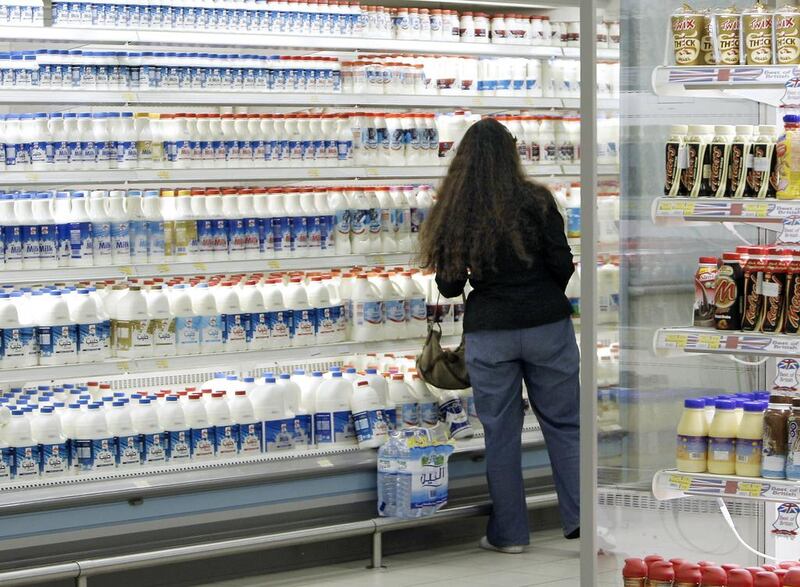As accountants, my peers and I have been talking about little else but VAT in recent days. Just discussing some of the top-level issues has kept us in coffee refills. What captured our imagination was the SME position and its many complexities.
For example, suppose your name is on a trade licence representing an entity that will be registering for VAT. Mabrouk! As the business’s representative, you have just become an unpaid civil servant – a VAT collection agent for the Government.
But you are not worried as your accountant has this covered. VAT is after all an accounting matter. You recall being told that a few additional nominal (accounting) codes will allow your business to meet any legislative requirements.
The first VAT audit that I went through in London as a finance director was an interrogation of supporting documentation, all of which I had, organised and to hand. The VAT inspector had the VAT guidebook, a large small-print paperback that he could open at will on any relevant page. I learnt many nuances of VAT over those two days and was charged appropriately for the gaps in application of my knowledge.
What was terrifying was not the statutory powers my affable VAT inspector could deploy but that he didn’t know a debit from a credit. Even after two days I wouldn’t have employed him as a ledger clerk. Intelligence is knowing that VAT has accounting implications. Wisdom is knowing that it’s not accounting.
Unless listed or an onshore company registered in UAE free zones, there is no legal requirement to conduct an audit, so many SME’s have developed the habit of mixing business and personal spend. VAT doesn’t change that but might drive such changes in future legislation.
Peter Whatley, a former tax partner at Grant Thornton and chief executive of Argent Gulf Consulting, told me: “Imagine purchasing an entertainment system that is listed as a company asset even though it’s sitting in a living room and finance [department] mistakenly reclaims the VAT. This amount, with interest and potentially a fine, must be repaid. Interest is also payable on fines. A maxim for good corporate governance is ‘it’s not personal, Sonny. It’s strictly business.’”
__________________________________
Value Added Tax in the GCC
■ Analysis: All in the details for value added tax in the GCC
■ Saudi Arabia approves an end to tax-free living
■ VAT to generate Dh20 billion in second year for UAE, Minister of Economy says
■ Comment: The basics of value added tax
__________________________________
Our representative, as named on the trade licence, might take comfort if compliance with state requirements are outsourced, meaning any failings would be covered by their service provider’s professional indemnity [PI] insurance. This is untested and while speaking with brokers, I found what little conversation there is was mostly hypothetical.
Where is the line of responsibility demarcated? We now have three potential parties to VAT errors and the third party is not the VAT man. It’s the insurer. The customer claims against the service provider who may counterclaim negligence in the information provided. To cover themselves the service provider may test the claim against their PI insurance.
Where is the VAT man in all this? His relationship is solely with the business’s representative. He demands payment supported by comprehensive and accurate documentation by the due reporting date. The representative cannot abrogate the reporting and payment obligation of the business’s VAT liability. This is a material cash flow risk.
A representative might ask how complex a single legal trading entity can be? Peter Whatley says: “Very, often akin to complex group structures depending on the nature of their activities. A convenience store shares much with large supermarket chains but without the beneficial efficiencies of scale.
“Consider milk. Typically, milk might be zero rated, but flavoured milk would be standard rated. A convenience shop purchasing 30 units a day on a sale-or-return basis requires an invoice detailing separately standard and zero-rated items, returns require similar documentation. Over a year, the transactions for this one metre of shelving might generate a similar volume in VAT requisite paperwork.
“Now consider the system changes required to separate standard-rated, zero-rated and exempt transactions. In the SME space in the GCC I expect most older systems will be defunct but this might be an opportunity to undertake a business process re-engineering [BPR] exercise.”
Accountants at large entities I’ve spoken to are using this event to review their supplier engagement protocols and expect their partner SMEs to communicate their VAT readiness as part of this process.
The scramble for competent personnel is well advanced, the top-tier audit practices long having hoovered up most of these. Even then, they are likely to be swamped servicing the larger corporate entities. SMEs face a Tinder search for what few suitable matches remain.
While many SMEs might plead that the lowering of the threshold for VAT, having significantly dropped in the latest guidance, is their defence for their poor preparatory position, remember this new number is reasonably standard in Europe.
Some in the business world might suspect that when newly established, the VAT will have some early blind spots.
But the GCC can take advantage of the decades-long global experience of VAT to prepare a structure with reduced fraud potential. The same applies to training the inspectors who will police what gaps might be exploited.
Financial deviancy of this type is pickpocketing governments. This is an extremely serious criminal offence.
Forty-four years after the UK introduced VAT, the auditor Moore Stephens in a 2016 survey reported 35 per cent of British businesses consider it their riskiest tax area.
In the UAE, the hour grows late and many businesses are only now seeking counsel. The hour is later than they think.
David Daly is a chartered accountant (CIMA) typically serving in chief financial officer or finance director roles.
business@thenational.ae
Follow The National's Business section on Twitter





